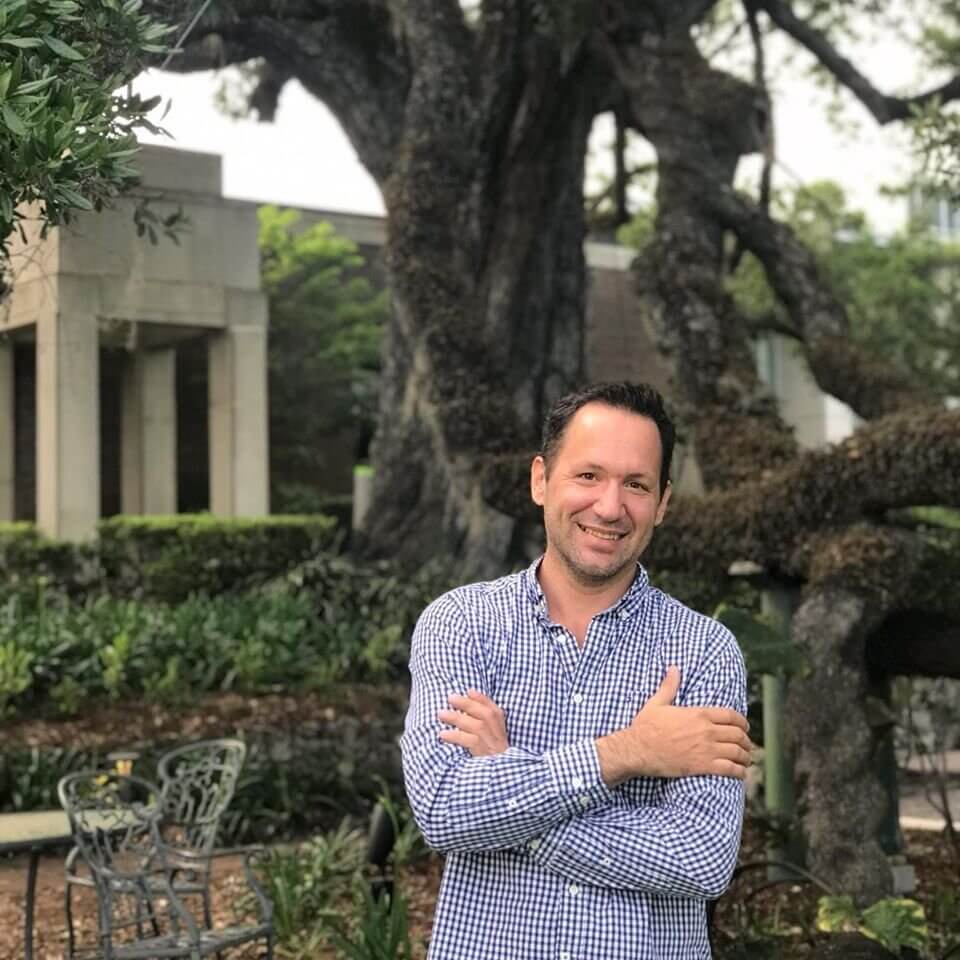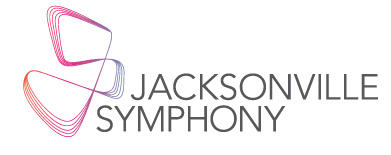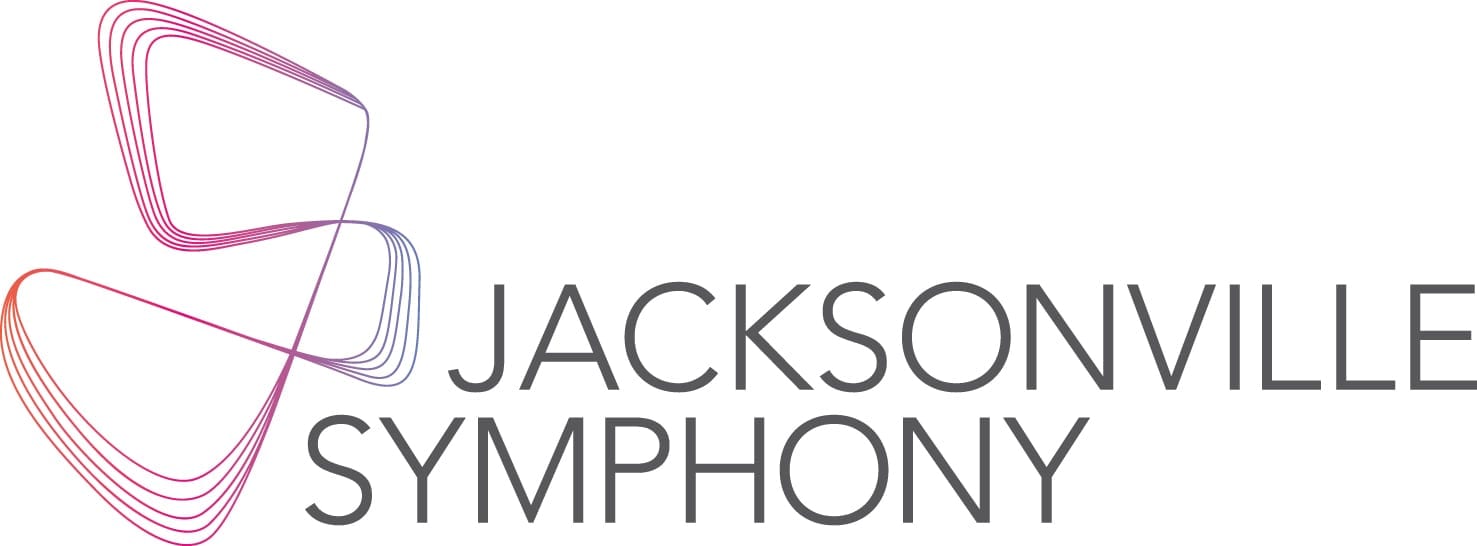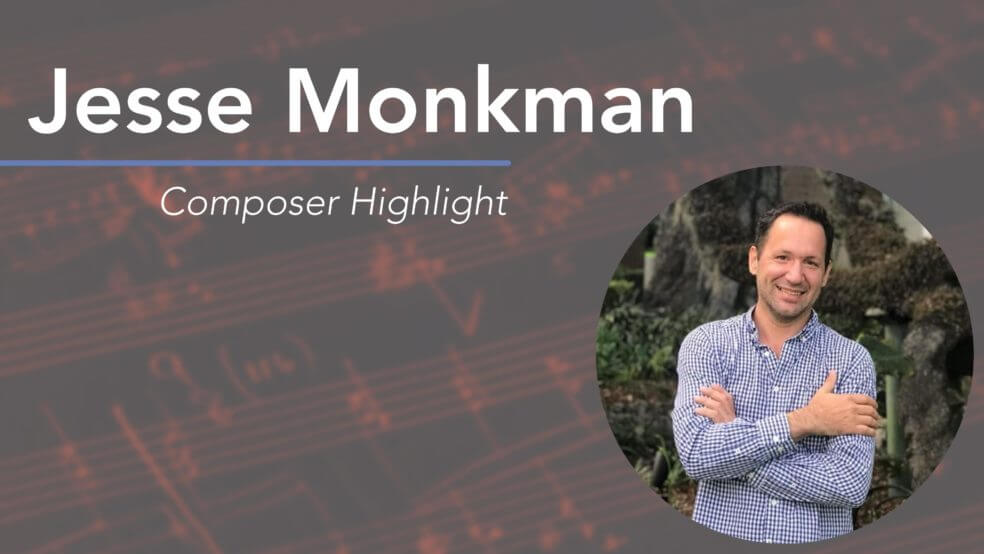Digital Marketing Manager Nicholas V. Hall shares what he believes to be an important part of orchestral repertoire: new music with living composers. By speaking directly to the artists of today, we learn what it means to be a living composer.
Composer Highlight: Jesse Monkman
“Write what connects to you personally. That will be your most authentic musical contribution.”
“New Music” is not something often associated with symphonic orchestral performances. However, this week Jacoby Symphony Hall will have something new on the program. Saturday, February 12, at 7:30 PM, the Brass, Organ, and Percussion concert features a world premiere alongside a full program unlike any other. Continue reading below to hear straight from the composer and learn more about the upcoming premiere. As an audience member, you might be concerned about listening to something new. However, attending a world premiere gives you the opportunity to be a part of history as the sounds of “Hunt from Lascaux” by Jesse Monkman will be heard for the very first time. Learn more about the full program and purchase tickets on the Brass, Organ, and Percussion event page.
Q&A Introductions
Nicholas V. Hall: Hello Jesse! Allow me to introduce myself. My name is Nicholas, and I am the Digital Marketing Manager for the Jacksonville Symphony. Outside of my role here, I am also a percussionist and composer. I would like to thank you for your time in answering these questions. I believe it is important to connect our audience to living composers and hear straight from the voice of the artist. To start, I’d like to ask the question all artists are asked many times throughout their career. Although it might seem trivial to talk about oneself, I find everyone’s individual story to be quite interesting.
The Musical Journey
NVH: How did you get into music? Did you have any other aspirations?
Jesse Monkman: My parents were both musicians. I grew up on a dairy farm in upstate New York, which was also a Dinner Theater in a mid-19th century barn. My father was an organist, and my mother was a soprano singer who performed there as well as having other guest artists. It was a bit like the 1940’s “Holiday Inn” movie. I was always drawn to it, being immersed in music as a child. I really had no other aspirations but to play music as a percussionist. Composing came later for me.
NVH: As a result of musical parents, it only seems natural you would be drawn towards music. From there, once you found yourself in music and writing music, I’m sure that journey involved quite a bit of experimenting to find where you felt comfortable in your style today. In my experience in the percussion world, I have noticed over the years a community of percussionists/composers who almost only compose for percussion. However, this is not the case for you.
NVH: Being both a percussionist and a composer, did you begin writing music for just percussion? What has been your experience writing for instruments other than your own?
JM: I did begin writing just for percussion, marimba specifically. I was late to begin learning four mallet marimba playing and wanted to immerse myself in the instrument when I got to New England Conservatory. I found the best way to do this was to write my own music that I found enjoyable and technically challenging to play. The first piece I wrote was ” Parody” for marimba, which has remained a popular piece for recitals and auditions. I didn’t have experience writing music for other instruments, but being so involved in orchestra, it gave me an education in writing for them that I feel is priceless. I have branched out to write full orchestral music, chamber music for brass, woodwinds, and strings. I have really loved writing outside of percussion.
Composing New Music
NVH: That orchestral experience and education are absolutely priceless! There is a great technical demand needed to learn how to write for other instruments, especially when so much time is put into learning one’s own instrument. However, writing for your own instrument can almost be MORE challenging at times.
NVH: When you do write for percussion, as a percussionist, how do you separate the ‘musical idea’ from the ‘technical idea’ within the music? Do you ever feel like the writing is pushed in a specific direction because it feels comfortable to play?
JM: Great question! I really try to be lyrical if I can. It can be a real balancing act to write something that is technically challenging/impressive while making it harmonically engaging to the listener. I always went to musical ideas first, technical secondary. If you have a good musical idea, expanding on that idea technically is much easier than the other way around. It can take an hour or a week to develop one idea I feel comfortable expanding on. I have been guilty of writing marimba music that fits my technical strengths in the past. I have moved to writing at a keyboard to avoid this recently. It has its strengths and weaknesses. There is nothing more organic than writing at the instrument.
NVH: So it seems there needs to be a perfect balance between writing at the instrument, as well as away from the instrument. Due to this, there is much to think about when writing music. It has always been interesting to learn about ‘how’ composers think when writing as well as how that method might change based on the project.
NVH: When you find yourself starting a new project with the intimidating ‘blank page’ in front of you, where do you find yourself going for inspiration? Any non-musical inspirations?
JM: When starting a new piece, my inspiration usually comes from either imagined scenes or emotions I wish to invoke. The hard part is making it convincing. There is no right way to start. The best you can do is be convinced you have an idea you can make enjoyable and engaging for the listener. I tend to go for big epic scenes and ideas such as the upcoming work “Hunt from Lascaux.”
The Audience Experience
NVH: “Convincing” is such an interesting word when relating to music. A word not typically used in describing music. However, I can only imagine a piece written where the composer themself was not convinced. Without that, the audience will certainly not be invested in a new work. Moving away from the writing process of being a composer, composers always need to convince new listeners or sell them on a new work. I am always curious to hear a composer’s “elevator pitch,” so to speak.
NVH: If you had just a brief moment to capture someone’s curiosity about your music who has yet to hear it, what should they listen for within the upcoming premiere of your piece?”
JM: This piece is an episodic work depicting an imagined Hunt from the famous Lascaux cave with 10,000+ year old cave paintings of exquisite detail and artistry. Each episode has a corresponding painting of which I musically represented the intensity of stalking of the animals, the frantic life and death struggle between the two as the hunt ensues, all ending with a death scene of whom I will leave up to the listener.
NVH: Having listened to and performed your works in the past, I look forward to seeing the ensemble perform your newest piece. I also look forward to hearing future works of yours and will be keeping an eye out for upcoming performances.
NVH: Are there any projects you are especially excited about? What can we expect to see from you in the near future?
JM: I have recently finished orchestrating my Marimba concerto “Rite of Passage.” I am really looking forward to hearing this with a full orchestra. It was originally devised as a percussion quartet. It’s been performed quite a bit in that form, and it looks like I will likely have a premiere of it next year in its full orchestra form. I will continue to write brass and percussion pieces as well concentrating on full symphonic works. It’s been amazing to have some of my works performed by such a fine organization as the Jacksonville Symphony.
Advice to Composers
NVH: The Jacksonville Symphony is proud to work with you on the upcoming premiere. I would like to thank you again for your time to answer our questions as we approach the premiere of your piece. As a composer myself, I would like to end this Q&A with one question to any young composers that may be reading.
NVH: If you had one piece of advice you could give your younger self, or young composers today, what would that be?
JM: Learn to be at least basically proficient at the piano. It really helps the composition process. Don’t be afraid to write what you feel. Learn from others, but don’t compare yourself. Try to find your own voice. Be open to criticism. Most people want to see you be the best you can be, and asking for knowledge is usually met with openness and enthusiasm. Write what connects to you personally. That will be your most authentic musical contribution.
Jesse Monkman

Noted Composer and Percussionist Jesse Monkman was born in Upstate New York where he began his musical training at the age of 10 with a concentration on music theory and percussion. Jesse attended the New England Conservatory of Music where he studied percussion with Frank Epstein and Will Hudgins of the Boston Symphony Orchestra and received his master’s degree in performance from Lynn Conservatory on full scholarship. It was while at the conservatory Mr. Monkman began composing seriously with the release of his first work “Parody” for solo Marimba. In the following years, Jesse has written for String Quartet, Percussion ensemble, Marimba Concerto, Piano, Pop Songs, Latin Band Songs and various commissioned works. Mr. Monkman’s music has been extensively performed in juries, recitals, competitions and various concert hall settings throughout the United States and internationally. Jesse’s works have been performed by the Beijing Philharmonic, Jacksonville Symphony, Savannah Philharmonic, Hilton Head Symphony and members of the San Francisco Symphony, New York Philharmonic, Boston Symphony, MET Opera and many others.
As a percussionist, Jesse has performed with the Boston Symphony, Atlanta Symphony, Jacksonville Symphony, Charleston Symphony, Malaysia Symphony, Portland Symphony, Savannah Philharmonic, Palm Beach Opera and has toured throughout Asia and the United States.
Learn More & Watch Live
To learn more about this program, be sure to read the full program on the event page. Tickets are still available and can be purchased online or at the box office. Interested in learning more about Jesse Monkman? Visit his webpage for a full list of works and upcoming events.
By Nicholas V. Hall, Digital Marketing Manager


